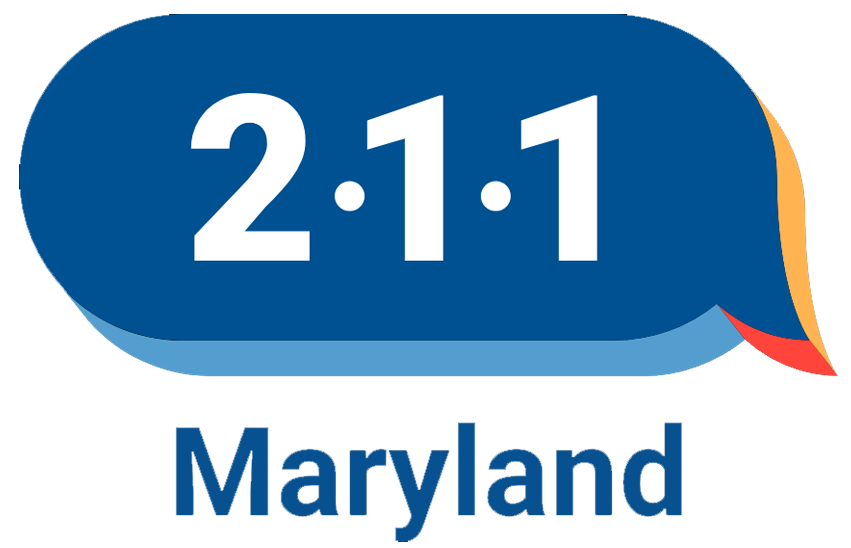RE-ENTRY & SOCIAL WORK SERVICES
The Maryland Department of Public Safety and Correctional Services (DPSCS) has adopted a philosophy that planning for an offender's re-entry must begin when the offender enters the Department of Correction. At the core of the Department's approach is the notion that re-entry is a worthy correctional practice and process. Re-entry calls for a comprehensive systems approach to managing offenders returning to the community. Institutions, programs, and staff have to be informed, integrated, empowered and committed to this approach.
The re-entry process includes assessments, case planning, and evidence-based programming and treatment delivery while in custody designed to ensure that the transition from prison or jail to the community is safe and successful. In 2020, DPSCS combined both Social Work and Re-entry Services to create a multi-disciplinary approach to serve citizens returning from the Department of Correction back to communities throughout the State of Maryland and abroad.
Mission
The Social Work and Re-entry Services Unit provides treatment, programming, and comprehensive pre-release planning for returning citizens under the care, custody, and supervision of the Maryland Department of Public Safety and Correctional Services. This is accomplished by providing effective treatment, implementing evidence-based programs, and coordinating linkages to community-based services that address each individual's risks and unique needs by changing their horizon and creating opportunities for community engagement.
Vision
The Maryland Department of Public Safety and Correctional Services Social Work and Re-entry Services Unit shall be a leader in innovative best practices that shall increase public safety, reduce recidivism, and promote healthy communities through targeted treatment with comprehensive Re-entry programming and services supported by collaborative interagency relationships and the expansion of community-based partnerships.

SOCIAL WORK UNIT
The DPSCS Social Work Department provides comprehensive release planning services to the special needs population returning to the community, cognitive-behavioral group treatment to the entire incarcerated individual population, and short-term, solution-focused individual counseling services.

RE-ENTRY SERVICES UNIT
The Re-entry and Transition Services Unit is responsible for the coordinated development and implementation of programs and services that will prepare incarcerated individuals for a successful return home after incarceration. This unit strategically identifies resources and services to eliminate barriers to the transition process and re-entry into the community.

RESOURCES
Click below to view the DPSCS interactive resource dashboard.
211 MD oversees a statewide network of call centers, providing essential connections to Marylanders when they need it most. Callers are automatically routed to their regional call center for assistance.
5 CORE VALUES
- COMMITMENT
- DIGNITY
- INTEGRITY
- COMPETENCY
- FAIRNESS
GOALS
- An integrated approach that focuses on re-entry and post-release programs that will reduce recidivism.
- Increase success rates for returning citizens who transition from prison back to the community.
- Enhance employer and educational institution awareness.
PARTNERSHIPS
Partnerships are a crucial element of the Social Work and Re-Entry Services Unit. Community and faith-based programs, social service providers, and local jurisdictions are being leveraged while aligning resources to serve returning citizens in a more integrated and effective fashion. As we continue partnerships with the Maryland Department of Labor by integrating the local public workforce system's services, DPSCS seeks to build a culture of stable employment as a cornerstone of successful re-entry into the community. By increasing offenders' post-release employment success through connectivity to the local re-entry navigators and local American Job Centers, not only will the incarcerated individuals and their families be served, but the community at large.
Social Work collaborates with the local Behavioral Health Authorities in each county and Baltimore City to better serve individuals with serious mental illness (SMI). This partnership allows for better connection to services that best meet the individual needs of each client. We have monthly re-entry-focused meetings with MDH and BHA to problem-solve challenging cases and share information. We also have a Memorandum of Understanding in place with the Social Security Administration and the Motor Vehicle Administration. The unit focuses on Maryland Justice Reinvestment Act requirements to facilitate returning citizens' social security card and birth certificate/ID before their release.
TESTIMONIALS
Ms. McSwain was released from MCIW. Ms. McSwain lives with serious mental illness and has checked in regularly since her release. She has stable housing and has been able to visit her family in DC several times with the permission of her parole agent. Ms. Swain has managed challenges and solved issues that have come up without going into a crisis. She has gracefully addressed challenges with her social security income, delays in her SNAP benefits, and medication issues. She successfully appealed to her insurance company regarding a medication she was taking that was not covered. She has even set up to have all her medications delivered to her home. She has followed through with all medical, mental health, and substance abuse treatment providers. She checks in regularly with the social worker who assisted her and provides updates on how she is doing.
Mr. James, a blind individual serving a long sentence at RCI, worked with Social Work for release planning in 2020. His main goals were around independence when he returned to the community. Mr. James was initially due to be paroled in December 2020 but ended up going home on home detention suddenly in September. Social Work assisted him with community appointments, connection to services for free MTA and metro services, and connection to the Department of Rehabilitation for employment assistance. DPSCS Social Worker and the DORs Vocational Counselor worked in tandem during his time on Home Detention to ensure he had access to all needed services and was working towards his goal of independence. Today, Mr. James has obtained his own cell phone and is also working part-time for Amazon, earning $15/hour. He reports he has been able to follow through on all community medical appointments and continues to look for ways to increase his independence.
Mr. Carter was released in January and stated that he was " cool " and happy to be released. Everything is going well, and he has a quality living arrangement. He said he does not have employment yet but is actively looking. The Re-entry Specialist advised him that they would have a Re-entry Navigator contact him. He was pleased with the assistance that Re-entry provided him, and he too said that he would participate in a panel discussion as well, but not on video.
Ms. Foster has been living in Baltimore City since her release from MCIW in July 2020. She lives with her grandmother, younger sister, and cousins. She reported that everyone living in the house is doing well and not affected by COVID-19. She is currently receiving $476 a week in unemployment benefits but wants to find employment to move into her own apartment in Baltimore City or County. She says she is having issues finding a job because of her criminal background, and DPP Agent suggested that she request to get her record expunged. When offered, Ms. Foster agreed to exchange emails so that the Re-entry Specialist could send her housing resources and an application for the PIVOT Women's Reentry.
